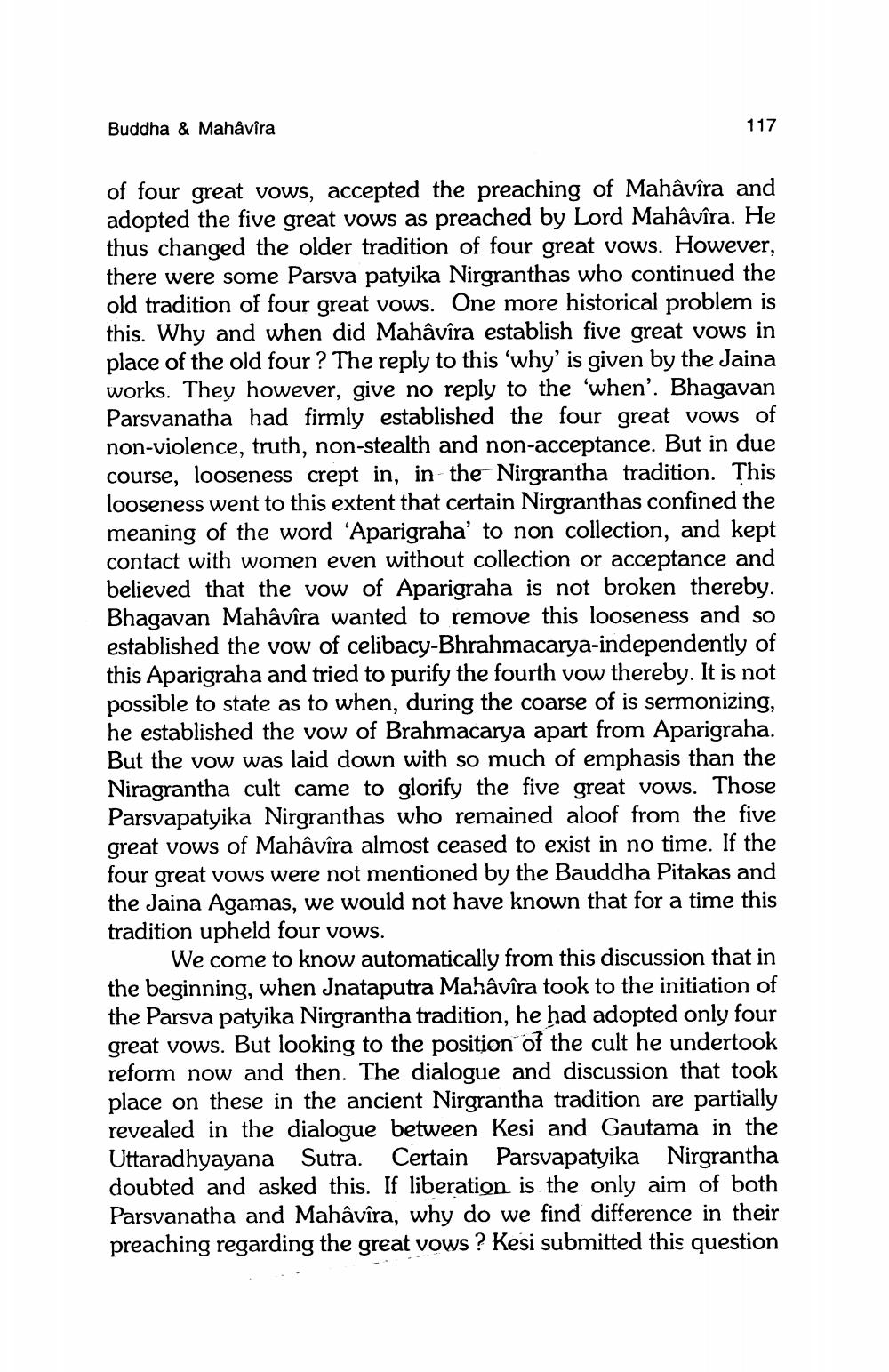________________
Buddha & Mahâvîra
117
of four great vows, accepted the preaching of Mahâvîra and adopted the five great vows as preached by Lord Mahâvîra. He thus changed the older tradition of four great vows. However, there were some Parsva patyika Nirgranthas who continued the old tradition of four great vows. One more historical problem is this. Why and when did Mahâvîra establish five great vows in place of the old four? The reply to this 'why' is given by the Jaina works. They however, give no reply to the 'when'. Bhagavan Parsvanatha had firmly established the four great vows of non-violence, truth, non-stealth and non-acceptance. But in due course, looseness crept in, in the Nirgrantha tradition. This looseness went to this extent that certain Nirgranthas confined the meaning of the word 'Aparigraha' to non collection, and kept contact with women even without collection or acceptance and believed that the vow of Aparigraha is not broken thereby. Bhagavan Mahâvîra wanted to remove this looseness and so established the vow of celibacy-Bhrahmacarya-independently of this Aparigraha and tried to purify the fourth vow thereby. It is not possible to state as to when, during the coarse of is sermonizing, he established the vow of Brahmacarya apart from Aparigraha. But the vow was laid down with so much of emphasis than the Niragrantha cult came to glorify the five great vows. Those Parsvapatyika Nirgranthas who remained aloof from the five great vows of Mahâvîra almost ceased to exist in no time. If the four great vows were not mentioned by the Bauddha Pitakas and the Jaina Agamas, we would not have known that for a time this tradition upheld four vows.
We come to know automatically from this discussion that in the beginning, when Jnataputra Mahâvîra took to the initiation of the Parsva patyika Nirgrantha tradition, he had adopted only four great vows. But looking to the position of the cult he undertook reform now and then. The dialogue and discussion that took place on these in the ancient Nirgrantha tradition are partially revealed in the dialogue between Kesi and Gautama in the Uttaradhyayana Sutra. Certain Parsvapatyika Nirgrantha doubted and asked this. If liberation is the only aim of both Parsvanatha and Mahâvîra, why do we find difference in their preaching regarding the great vows? Kesi submitted this question




